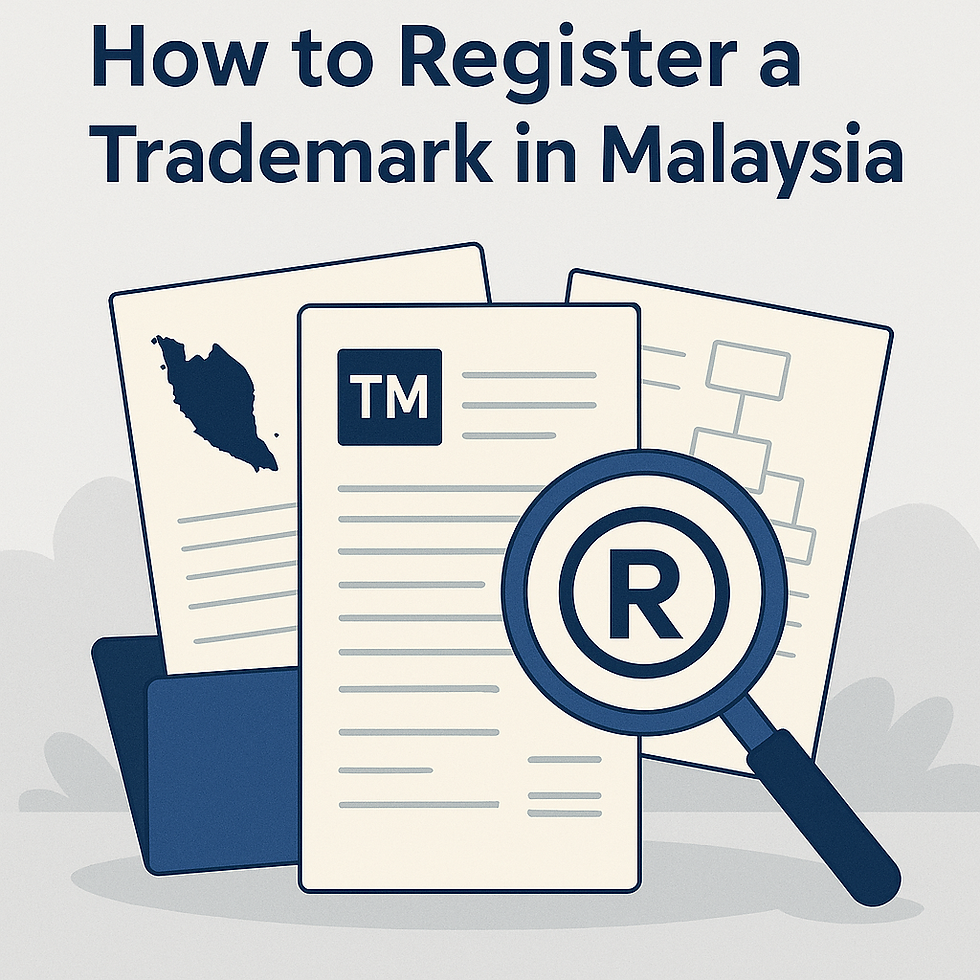YOU CAN’T USE THE WORD “BOSS” ANYMORE!
- Vincent Lim-Teh

- Mar 24, 2020
- 3 min read
Updated: Aug 20, 2020
Recently, a comedian from the UK legally changed his name to Hugo Boss as a protest against the trademark enforcement practices of the designer fashion house. Apparently, the comedian was miffed about the cease & desist letters that Hugo Boss (not the comedian, obviously…) has sent to small businesses and charities who use the word 'BOSS'. Sorry “Bossku”. Can I advise you something…?
If you’re thinking to yourself, “shut the front door! That’s Impossible! Can they do that?!”. Well, the short answer is “impossible is nothing” …sorry Adidas! Don’t sue k…
Generally, a word (regardless of whether it is common or completely made-up) is capable of being registered as a trademark, as long as it is “Distinctive”. For a common word to be Distinctive, the consumers must see it as a brand (a.k.a. “indication of origin” in legalese) and not merely a common word. Think “Shell™”, “Apple™” or “Proton™”.
So, with only 171,476 English words currently in use (according to The Oxford English Dictionary) and with the average speaker having only approximately 20,000 in her repertoire, are we not running the risk of drying up the common pool by allowing anyone to monopolise any word he pleases?
Well, there are 3 things you need to remember about trademark registration. Firstly, almost all trademark registrations are for specific products/services. So far, no one has been able to register a trademark for everything under the sun! Secondly, having a registered trademark doesn’t mean you can stop everyone from using it. People are still allowed to use a registered trademark for non-commercial purposes (e.g. for products comparisons, service reviews, parody, etc.). Thirdly, remember we said that a word can only be registered if it is Distinctive? As it turns out, that’s not always an easy hurdle to overcome, especially for a common word.
Most trademark regimes (including Malaysia’s) have an in-built mechanism to prevent someone from monopolising a common, generic word (e.g. registering the word “Coffee” for coffee products). This mechanism is the called the Distinctiveness Test, and a word that is exclusively descriptive is almost always going to fail the test. For example, when we see the word “café” on the signboard of a F&B outlet, we will see it only as a description of the type of business found within the premise, we won’t think of it as a brand or a trademark. This is why the word “café” cannot be registered as a trademark for F&B outlets because it lacks distinctiveness.
Nevertheless, the Distinctiveness test is not fool proof. There is still a way for common, descriptive words to be registered as trademarks. Shockingly, this “back-door” approach is, apparently, entirely legal (like something else Malaysians have recently come to realise is apparently also legal). Trademarks such as “The Body Shop”, “Sharp” and “Simple” are allowed registration because they are not 100% descriptive, and most importantly, they have “Acquired” Distinctiveness.
Acquired Distinctiveness is actually not a new concept. We’ve already said that a common word can be registered if the consumers see it as a brand and not just a word. So, a common, somewhat descriptive word can gain (hence “Acquired”) Distinctiveness if the business using the word as a trademark has used it extensively and for a long time. The effect of such long and extensive use is that consumers see it as a brand of the business. However, the more descriptive a word is, the longer and more expensive the process of acquiring distinctiveness will be. Even the owner of Booking.com™, one of the biggest booking sites in the world, is fighting in the US Supreme Court to get its trademark registered in the country.
So, where does that leave us? If you ever receive a cease and desist letter from the alleged owner of a certain word, telling you to stop using it or be prepared to face a multi-gazillion lawsuit, just stop and think for a while. Have you been using the word commercially? Are you using the word for a business that is related to the alleged owner’s? Is the word 100% descriptive of your products or services?
These questions will give you a clearer picture of whether you’re screwed, or whether you can tell the sender to go fly a kite (keeping in mind that sending a baseless threat is illegal according to our new Trademarks Act). For example, calling the anna/anne at your favourite mamak "Boss" is fine; calling yourself "Bossku" is absolutely douchey but still legal; using the word "Boss" on a T-shirt that you are selling is touch and go (incidentally, using the term "touch and go" in an article is fine); selling your bungah kantan and pandan perfume under the brand "Boss" is a lawsuit waiting to happen. Confused? Talk to an IP Professional just to be sure.





Comments